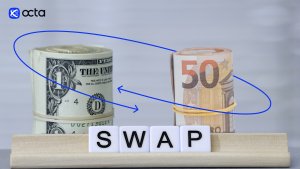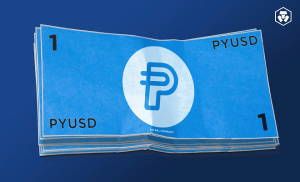Mystery surrounds death of Mirror Trading’s CEO Steynberg in Brazil
Johann Steynberg, the South African behind a notorious bitcoin Ponzi scheme, has reportedly died under suspicious circumstances while under house arrest on a farm in Brazil’s Goiás state.

Steynberg, the CEO of Mirror Trading International (MTI), was facing extradition when he reportedly succumbed to a pulmonary thromboembolism, a condition that involves blood clotting in the lungs.
Despite a death certificate being posted online, there’s a lot of doubt about the authenticity of Steynberg’s death. This skepticism is fueled by past events like the case of Thabo Bester, a convicted killer who faked his death to escape from a South African prison. Many people on social media and some local news sources are speculating that Steynberg might have staged his own death to avoid facing legal issues.
Before his death, Steynberg was struggling with severe mental health issues. Reports from Mybroadband indicate that his condition was worsening, prompting his lawyer to seek medical assistance for a panic attack just a week before Steynberg’s reported death.
The circumstances of Steynberg’s reported demise are under investigation by an elite South African police unit, which has yet to confirm his death officially. Meanwhile, his Brazilian wife claims that Steynberg left no will and had no assets to be inventoried.
The investigation continues as authorities work to verify Steynberg’s death and understand the implications for the victims of the MTI scheme, which had promised returns on bitcoin investments but was later exposed as a fraud.
The winding-up process for MTI has been complex due to limited legal precedents to rely on. One issue revolves around how to calculate the value of bitcoin deposits made into MTI, whether it should be based on the South African rand value at the time of deposit or at the point of the scheme’s collapse.
While there are reports of victims receiving between 50% and 60% of their money back, the liquidators stated that the amount will vary as they receive more claims.
In the US, a Texas court ordered Mirror Trading International Proprietary Limited (MTI) to pay $1.7 billion in restitution and penalties. The record-breaking fine was in connection with accusing the South African crypto firm and its chief of running a large-scale fraud scheme involving Bitcoin.
Per the court papers, MTI CEO Johannes Steynberg was ordered to pay $1.7 billion in restitution to victims who were defrauded by the scheme, while another $1.7 billion was imposed as a civil penalty. This was the highest civil monetary penalty ever ordered in any commodities or cryptocurrency case, according to the Commodity Futures Trading Commission (CFTC).
The CFTC has originally brough the charges against Steynberg and his business back in June 2022, alleging that they accepted 29,421 BTC for running an unlicensed commodity pool between May 2018 and March 2021. The scheme defrauded 23,000 investors in the US and elsewhere out of more than $1.7 billion at the time of acceptance.
Steynberg founded MTI in April 2019, which quickly became one of the fastest-growing cryptocurrency trading platforms in the world, with a reported user base of over 260,000 individuals. The platform’s success was falsely attributed to its unique trading algorithm, which used artificial intelligence and machine learning to analyze market trends and make profitable trades on behalf of its users.
However, in late 2020, MTI’s operations came under scrutiny, with allegations of fraud and misconduct being leveled against the company. In early 2021, MTI was placed under provisional liquidation by a South African court, and Steynberg was arrested on charges of fraud and racketeering.









